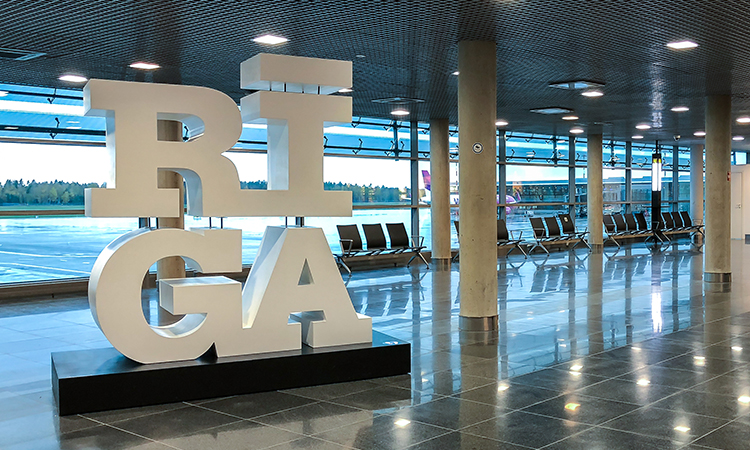Riga Airport commits to becoming net zero by 2050
- Like
- Digg
- Del
- Tumblr
- VKontakte
- Buffer
- Love This
- Odnoklassniki
- Meneame
- Blogger
- Amazon
- Yahoo Mail
- Gmail
- AOL
- Newsvine
- HackerNews
- Evernote
- MySpace
- Mail.ru
- Viadeo
- Line
- Comments
- Yummly
- SMS
- Viber
- Telegram
- Subscribe
- Skype
- Facebook Messenger
- Kakao
- LiveJournal
- Yammer
- Edgar
- Fintel
- Mix
- Instapaper
- Copy Link
Posted: 12 July 2021 | International Airport Review | No comments yet
As part of its commitment to achieving net zero emissions by 2050, Riga Airport will develop a medium-term 2030 sustainability strategy to help the airport to achieve its climate goals.


Riga International Airport (RIX) has announced that it has joined the Airports Council International (ACI) Europe initiative Net Zero 2050, thereby acknowledging its dedication to achieve a complete reduction of CO2 emissions in the emission sources under its direct control by 2050.
After joining the initiative, Riga Airport is working to ensure that the company does not cause any CO2 emissions in its basic operations or emissions that cannot be prevented or compensated. The airport is prepared to facilitate the achievement of global climate goals by considering a business transformation, and will develop a medium-term sustainability strategy until 2030 to achieve its climate goals.
“Riga Airport continuously works on reducing its amount of CO2 emissions. By taking several important measures, the airport has managed to reduce the amount of emissions by 32 per cent over the period of the last five years. Riga Airport has been certified as Level 2 of the Airport Carbon Accreditation (ACA) programme and, in 2020, it developed its first carbon management plan for 2020 to 2023. The plan includes new goals to reduce emissions until 2023 and aims to improve the airport’s performance in achieving climate goals,” said the Chairperson of the Airport Board, Laila Odiņa.
Jost Lammers, President of ACI Europe and CEO & President of Munich International Airport, commented: “Europe’s airports have been leading climate action with annual reductions achieved every year for over a decade. Currently, 172 of them have achieved climate certification by the global industry standard, the Airport Carbon Accreditation. However, our Net Zero commitment brings a new dimension to this endeavour – no offsets. Relaunching the pledge amidst the most severe crisis ever seen in modern times shows that the airport industry is aligning itself with the European Union (EU) ambition to reach climate neutrality by 2050, embedded into the European Green Deal, as part of the global effort to address the Climate Emergency. I would like to commend Riga Airport for joining the ranks of airport leaders aligning their environmental targets with global climate goals.”
Electricity and fuel consumption are two main sources of emissions at Riga Airport. Therefore, the airport plans to focus on reducing these emissions, for example, by creating its first solar panel park and restoring service buildings, making them more energy efficient and environmentally friendly.
In the coming years, Riga Airport plans to certify at Level 3 of the ACA programme, which aims to reduce the emissions not under direct control of the airport but are caused by the companies and organisations working at the airport.
Related topics
Airport Carbon Accreditation (ACA), Airside operations, Emissions, Sustainable development, Terminal operations
Related airports
Related organisations
Airports Council International Europe (ACI Europe), European Union (EU)


















